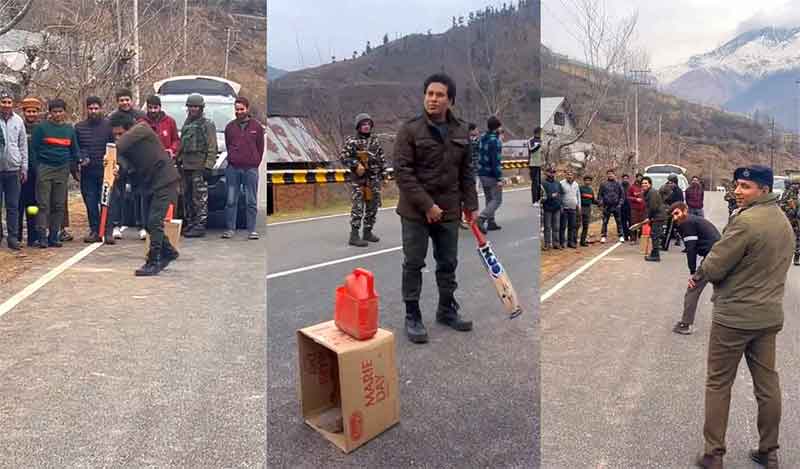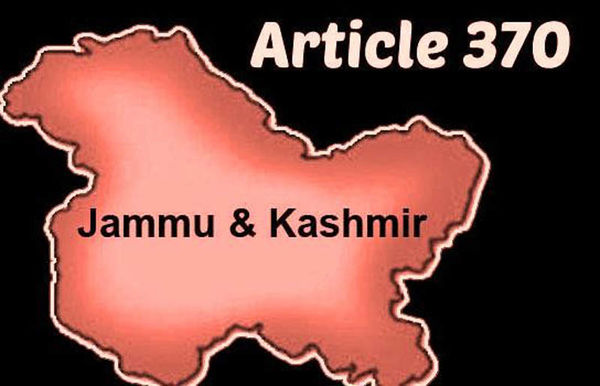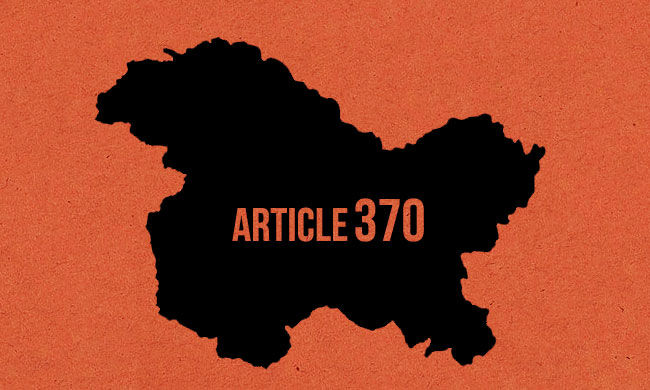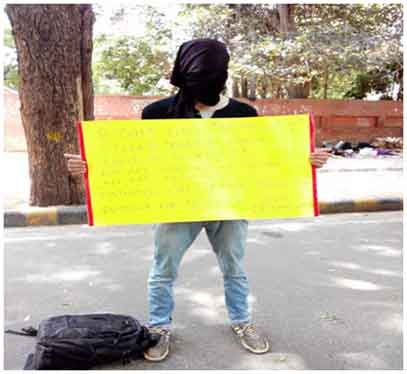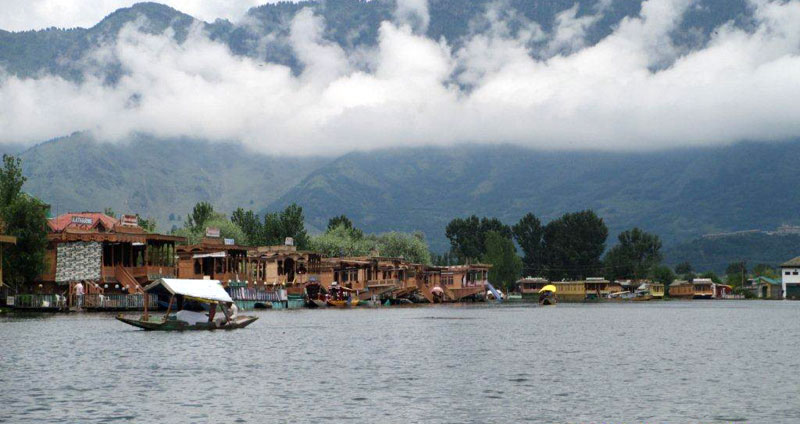
‘Welcome to Kashmir’ one of my Kashmiri friends sighed and exclaimed after I had explained to him about our experience in Srinagar. ‘The way you were thrown out from Kashmir doesn’t indicate mere humiliation to you, but it exhibits the grimed situation here’ he opined.
Every time I had prepared to visit the valley earlier, my plans were obstructed by fate. I had been tempted more than enough by social media updates from Kashmiri friends about Yakhni Lamb Curry, Rogan Josh, and of course, the ultimate Wazwan that is served at the marriages. The serene pictures that dominated my Facebook feed inspired me and prompted me to go with the plan. And above all these, I love Kashmir for different reasons.
My son, an artist, who saw it as an opportunity to add more aesthetic substance to his work, happily agreed to accompany me this time. Finally, the day arrived, and we booked tickets. One day before our journey, Syed Ali Shah Geelani Sab passed away, which sent the desolate valley into a communication blackhole. After a lot of back & forth, we decided to go ahead with our plan assuming that things will be alright within a few days.
Our apprehensions proved right. The entire valley was in mourning. Businesses were closed, roads were deserted, and the city wore a grim look. Nevertheless, the tourist spots bustled with crowds. After checking in to a cheap hotel with the help of a friend we went for a Shikara ride in Dal Lake. Kashmiris’ welcoming nature and hospitality pleased us very well. The first day was a breeze, with boat riding in the lake, shuffling in the markets, and silly, laughable posing to a Shikara photographer.
Despite the bar on telecommunications and internet facility, BSNL, the government network provider, remained operative, though without internet. I reminisced about the days when internet was not a word, my son paid the audience, and we had a good time together after a long gap.
The next day, we hired a taxi, to show us around, and take us to some popular places. We were done by noon, and as beautiful as the valley was, I could feel certain current underneath that calm. My lunch back at my hotel was followed by a nap, and I strangely woke up to a door latched from outside. I called my son who was in a room opposite to mine, and he unbolted it.
I didn’t think much of it and assumed that it might have been mistakenly locked by the hotel staff. It was soon to be proved wrong.
The air in the hotel became thick with unease, and soon the eerie calm was broken by a strange sight. From the glass window of my room, I could notice a few people unusually lurking around within the hotel premises. It was followed by a call from my friend who had helped us to find this hotel. He told me that his friend will take us to his home, and everything will be explained there. That friend never arrived. He was picked up and taken to police station, as I would later learn from my friend.
I went downstairs to enquire the hotel proprietor about the strangeness of the day. He told me that the J&K police asked them not to permit us to go outside the hotel and the local SHO was expected to question me soon. They deputed a few constables in civilian clothes here, who were the same persons seen from glass windows.
The said officer didn’t turn up, even after a long wait. My friend was receiving numerous calls from the worried family of his friend. I went downstairs yet again and enquired with the policeman this time. He politely said that his officer would come soon.
‘But it is too late’ I argued with him in vain. Then I began to negotiate with him gathering all my patience. ‘Why have you kept him under custody? He is an innocent man and came to take us to his home’ I desperately tried to explain to him, but it fell on deaf ears. I asked him to connect to his officer. He tried but that officer refused to speak to me on phone saying that he would come there soon.
He didn’t. After a few hours, the person taken into custody came to the hotel dragging his feet. With a heavy heart, he requested us to advance our return tickets for the next day. I immediately understood that the message was from the SHO delivered through this man. I agreed without a murmur and booked the tickets with the help of my friends living outside Kashmir.
After I sent the screenshots of the tickets to the hotel owner, who then forwarded them to the officer, my friend’s friend was released. His car was released only after it was ascertained that we had made it to the airport.
Aboard the aeroplane, I still could not find peace. Absolutely unaware of the drama my visit would unveil, I had messaged a few acquaintances in Srinagar intimating them of my stay. I am yet to learn about their safety. I hope they remained unharmed, and sincerely apologise for any problem caused to them by my messages.
I simply never imagined I would be persona non grata for mighty establishments such as Indian security agencies and J&K Police.
We had to cut short our journey, my son consoling me and holding my hand. We bid adieu to the small hotel owners, taxi drivers, Shikarawalas, the Kupwara students working at the hotels– cooking and serving, besides pursuing their masters. Memories of all the Kashmiris we met and chatted with were flashing in my mind.
Concluding that Kashmir is unsafe to visit, based on our experience, will be a misrepresentation. Quite the contrary. The valley was flush with tourists who had been pouring into all sorts of accommodation and filled the tourist spots. In fact, several hotels were safely prefixed with the adjective ‘Gujrati’, to indicate the crowds that meant business in literal sense. We simply hadn’t fitted into their description of tourists.
Many are of the opinion that Kashmir is an integral part of India; yes, it’s an ‘integral’ part for those who intend to rob the resources there, and grab votes from Indian voters saying the same. They can freely walk around the valley. But those Indians who could be able to find the emotional resistance weighing in Kashmiri hearts are guarded and prohibited to roam around freely there.
In Mughal gardens, where it’s forbidden to pluck a flower, you can get away doing that too. But never try to reach the heart of a Kashmiri. That is a grave crime there. That was my crime. I’m still doing this by speaking, writing, translating, and editing pieces about Kashmir. That is the reason why I was thrown out of the picturesque valley.
Persian poet Sadi Shiraz writes
Human beings are
Members of a whole
In the creation of one essence and soul
If one member is afflicted with pain
Other members uneasy will remain
If you have no sympathy for human pain
The name of human you cannot retain
Internalizing these words may lead you to risk such as I confronted. The risk many have already willingly faced. Even for those who are born in a privileged land, and belong to a privileged religion -to think and grieve about the people of a tormented territory is a dangerous offence.
Rama Sundari is with Progressive Organization for Women. And also an editorial board member of magazine Matruka. She has translated Gowher Geelani’s book Kashmir: Rage and Reason into telugu and edited some of the translated books of kashmiri authors. By profession she is Head of the Electronics and Communications Department in a Government polytechnic, Andhra Pradesh.

